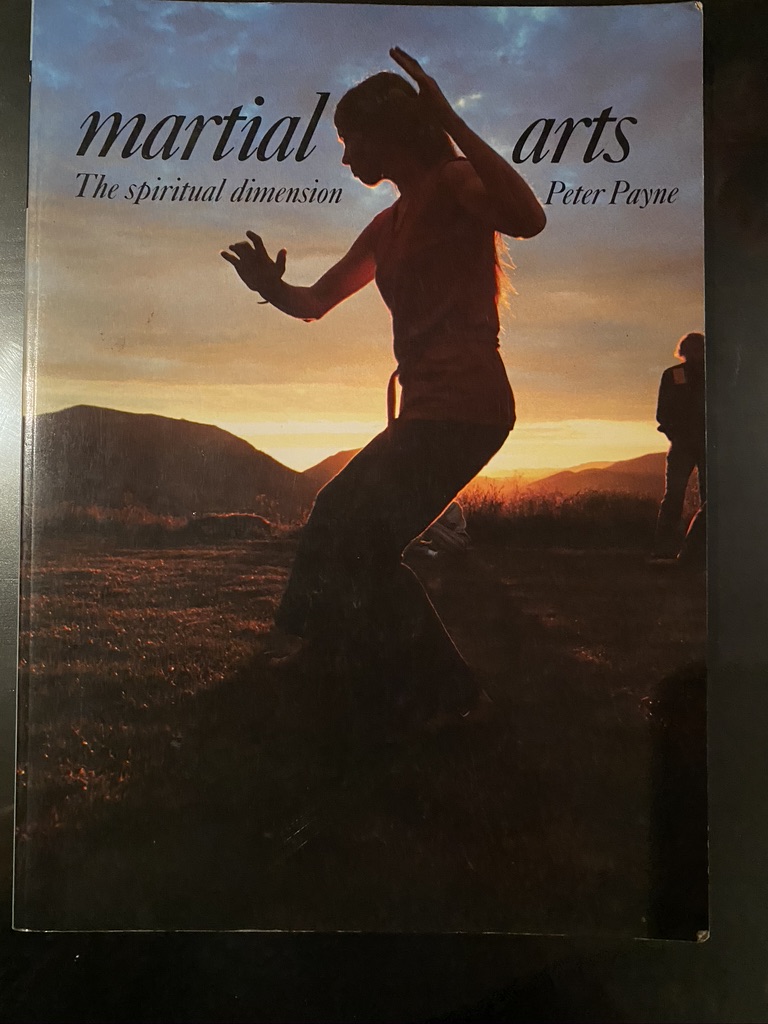(This article is the flip-side of a separate article – Gong: work and effort– both should be read in conjunction)
I’ve always considered myself quite ‘spiritual’. I’ve twice thought seriously about becoming a monk, and got my first book on black magic at the tender age of 10. One thing led to another, and after chunks of hatha and raja yoga, a spoonful of kundalini, and the odd dashes of theosophy, numerology, oriental alchemy, and so on, I settled happily into Theraveda Buddhism, which I’ve been “following” for as long as I’ve been practicing Tai Chi Ch’uan. I even have a book by Peter Payne called “Martial Arts: the Spiritual Perspective”
… so I think I have established spiritual credentials 🙂

Tai Chi, of course, is not Buddhist, it is a Taoist martial art. Albeit British-Australian, rather than Asian in any guise, I sympathise with the “three religions are one” approach, and personally find great synergies in my practice of this Taoist martial art and of Theraveda Buddhism. The spiritual aspects that we find in Tai Chi Ch’uan are most readily apparent however in the more advanced work. Indeed, it is in the last Yang neigong exercise that we find the most explicit devotional and meditative practice, and the neigong more generally provides the basis for working on Taoist internal alchemy – the transformative work on the three treasures of Jing, Qi and Shen. Interestingly, the wikipedia entries make the distinction between the TCM and Taoist references to the three treasures, partly due to the confusion with the triple gem of Buddhism – see https://en.wikipedia.org/wiki/Three_Treasures_(traditional_Chinese_medicine) and https://en.wikipedia.org/wiki/Three_Treasures_(Taoism), which also starts to overlap with (neo-Confucian) elements of moral conduct.
When we say things like “devotional” and “meditative” we are presumably talking about “spiritual” stuff. Like pornography, it may be difficult to define, but you know it when you see it – or do you? I believe (perhaps wrongly) that many people do not readily associate “spirituality” to physical exercise. When, in PTCCI classes, we get students to jump and duck with swinging sticks and punches, some may ask where is the spiritual practice? Is it easier to see in people practicing hand forms? What about weapons forms? And if those forms are faster or slower? With explosive movements and breathing? What about the ethics of who strikes first ?
I submit that “spirituality” is really an outlook that imbibes your practice, and you can probably practice football in a spiritual way. However, there are some pursuits that seem more predisposed than others, and martial arts generally is taken to be one of them.
We have a bit of double bind here – Tai Chi Ch’uan may be considered a means to an end, where the end maybe defined in a spiritual, even alchemical way. But our focus has to be on the journey, not the destination. The journey of Tai Chi Ch’uan can benefit from a spiritual outlook, but it’s really about work, lots of it. The more you work, the more effort you put forth – the more you focus on “gong”, the more you are likely to be able to cultivate, and benefit from, the spiritual aspects of the art.
There are no shortcuts. As Cheng Tin Hung is reputed to have said “Tai Chi Ch’uan should never be easy”.
1 Comment
Comments are closed.